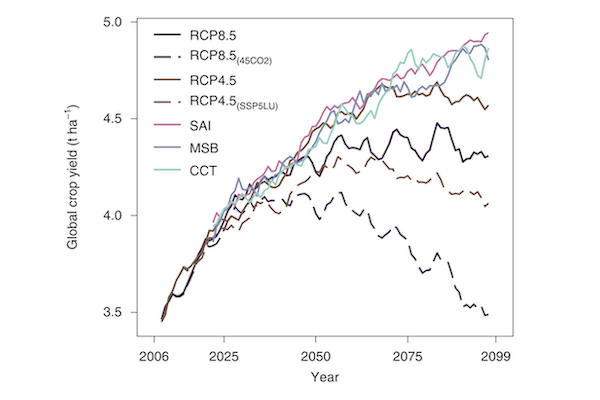Solar geoengineering can alleviate climate change pressures on crop yields
Yuanchao Fan , Jerry Tjiputra , Helene Muri , Danica Lombardozzi, Chang-Eui Park , Shengjun Wu and David Keith
Yuanchao Fan , Jerry Tjiputra , Helene Muri , Danica Lombardozzi, Chang-Eui Park , Shengjun Wu and David Keith

Solar geoengineering (SG) and CO₂ emissions reduction can each alleviate anthropogenic climate change, but their impacts on food security are not yet fully understood. Using an advanced crop model within an Earth system model, we analysed the yield responses of six major crops to three SG technologies (SGs) and emissions reduction when they provide roughly the same reduction in radiative forcing and assume the same land use. We found sharply distinct yield responses to changes in radiation, moisture and CO₂, but comparable significant cooling benefits for crop yields by all four methods. Overall, global yields increase ~10% under the three SGs and decrease 5% under emissions reduction, the latter primarily due to reduced CO₂ fertilization, relative to business as usual by the late twenty-first century. Relative humidity dominates the hydrological effect on yields of rainfed crops, with little contribution from precipitation. The net insolation effect is negligible across all SGs, contrary to previous findings.
A radical solution to address climate change, with David Keith
The Economist: David Keith on why carbon removal won’t save big oil but may help the climate
Crooked: There Goes the Sun?